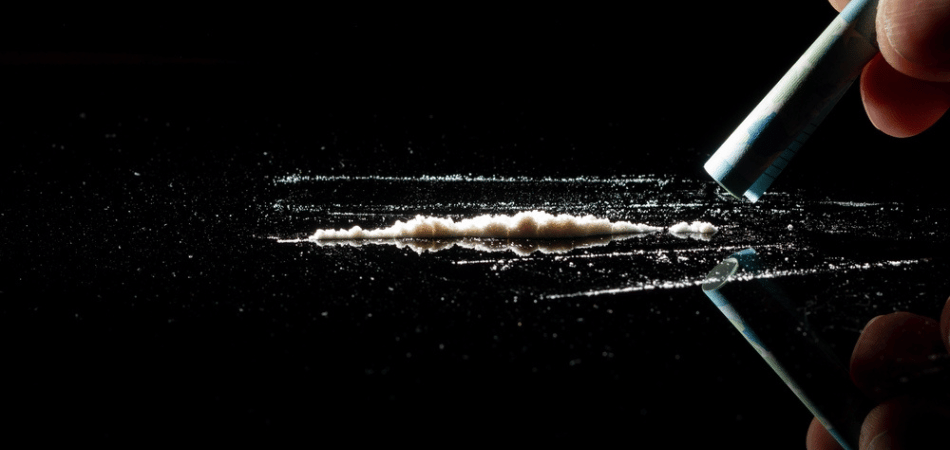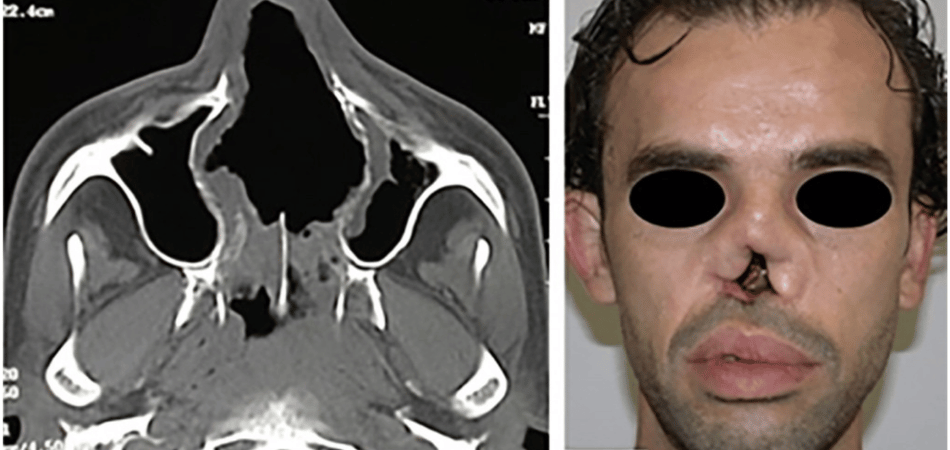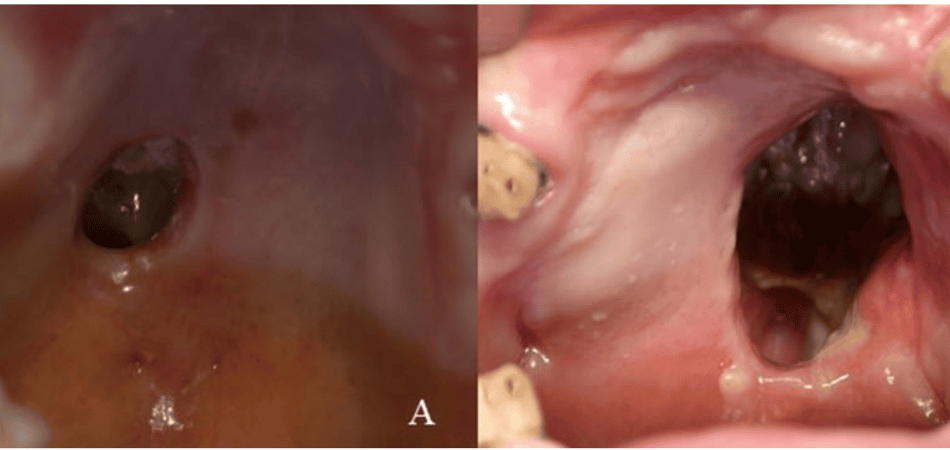Last Updated:
March 28th, 2025
According to recent reports, the UK has become the largest consumer of cocaine in Europe and the second largest globally. Experts have suggested that this may be linked to the UK’s binge drinking culture and the ease with which the drug can be acquired—being as simple as ‘ordering a pizza’. Given the accessibility of a substance as addictive as cocaine, it is not a far-fetched notion that many individuals are currently suffering from or will suffer from, cocaine addiction. In this blog, we will examine the signs of cocaine addiction as well as the long-term risks it poses to users.
Warning: This blog contains imagery that some readers may find distressing.
Why is it important to keep an eye on signs of cocaine addiction?
It’s crucial to be able to spot the signs of cocaine addiction, especially now in the UK, where the use of the drug has soared to concerning heights. Some experts are even calling it an epidemic, underlining the pressing need for more people to be aware of how the drug affects individuals, including the telltale signs of addiction.
The tricky thing about cocaine, as is for any drug, is how subtly it can begin to dominate a person’s life, no matter why they started using it in the first place. Many fall into the trap of thinking they can keep their usage under control and avoid addiction, which is a widely held but dangerous belief. Dame Carol Black, a renowned professor and researcher, has pointed out that many people who use cocaine don’t even see themselves as addicts, which is a clear sign of how deceptive the drug can be.
So, with that being said, let’s take a look at some of the key signs of cocaine addiction:
Key signs of long-term cocaine addiction
Whilst many would associate cocaine addiction with only a need for more and perhaps dwindling finances, the fact is that addiction affects every aspect of your life. Here are some of the key signs of long-term cocaine addiction.
Physical signs
- Nasal damage: Chronic snorting can lead to a loss of smell, nosebleeds, runny nose and problems with swallowing.
- Weight loss: Cocaine can reduce appetite, leading to significant weight loss and malnutrition.
- Cardiovascular issues: Increased risk of heart attacks, chest pain and irregular heart rhythms.
- Neurological effects: Increased risk of strokes, seizures and headaches.
Sexual dysfunction: Difficulty achieving or maintaining an erection or decreased libido.
Psychological signs
- Addiction: Inability to stop using cocaine despite wanting to quit.
- Mood swings: Extreme changes in mood, from euphoria to depression.
- Paranoia: Irrational distrust or suspicion of others.
- Anxiety and panic attacks: Increased feelings of nervousness, fear and panic.
- Hallucinations: Seeing, hearing or feeling things that aren’t there.
Behavioural signs
- Increased risk-taking: Engaging in risky behaviours, such as unsafe sex or driving under the influence.
- Social isolation: Withdrawing from family and friends.
- Financial problems: Spending large amounts of money on cocaine, leading to financial distress.
- Legal issues: Arrests for possession, use or actions taken while under the influence.
- Occupational problems: Loss of job or decreased performance at work or school due to drug use.
Health complications
- Respiratory issues: For those who smoke crack cocaine, problems like respiratory distress and lung damage.
- Mental health disorders: Exacerbation or development of mental health issues like depression, anxiety disorders or psychosis.
Is ‘coke nose’ a real thing?
‘Coke nose’ is a serious condition associated with long-term, heavy cocaine use. If you’re over 30 and from the UK, you might remember the shocking images of EastEnders actress Danniella Westbrook, which highlighted the damage to her nose from prolonged cocaine addiction. So, why does this happen?
Cocaine acts as a powerful vasoconstrictor, drastically reducing blood flow to the nasal tissues. Over time, this can cause the tissues to die, leading to a hole or perforation in the septum. This damage can bring about several problems, including:
- Difficulty breathing through the nose due to altered airflow
- A higher chance of infections as the natural barrier of the nostrils is weakened
- Frequent nosebleeds from the fragile tissues around the perforation
- In severe cases, changes to the nose’s physical appearance if the nasal bridge’s structure is compromised.
Source: MDPI
Chronic cocaine use doesn’t only affect the septum; it can also harm the roof of the mouth or the hard palate, causing palatal perforation. This results from the same reduced blood flow and tissue death. Palatal perforation can lead to severe issues, such as;
- Difficulty speaking or voice changes because the normal separation between the nasal passages and mouth is lost
- Problems with eating and drinking due to food and liquids leaking from the mouth to the nose
- Increased risk of oral and nasal infections from the open connection between the mouth and nasal cavity.
Source: MPDI
Both septal and palatal perforations indicate significant damage to the nasal and oral structures, highlighting the harmful health effects of cocaine use. Treating these conditions often requires surgery, like grafting, to fix the perforations. However, the most crucial step towards recovery is stopping cocaine use to stop further damage and seek professional medical help.
How do I know if I have a cocaine addiction?
Apart from the obvious signs of cocaine abuse, it can sometimes be difficult to know when your cocaine use has spiralled out of control. While we never support any use of cocaine, if you are using it often and are worried about addiction, it’s crucial to take a moment of self-reflection. Below, we’ve devised seven questions that you can ask yourself:
- Do you often use cocaine when you’re alone?
- Have you found yourself using more cocaine over time to get the same effect?
- Have you tried to cut down or stop using cocaine but couldn’t?
- Do you spend a lot of time obtaining, using or recovering from the effects of cocaine?
- Have you neglected responsibilities at work, school or home because of cocaine use?
- Have you continued using cocaine despite it causing trouble with your relationships?
- Do you experience withdrawal symptoms when you haven’t taken cocaine for a while, such as fatigue, unpleasant dreams, insomnia or increased appetite?
It’s crucial to remember that answering ‘yes’ to any of these questions could suggest a cocaine addiction, but only a trained professional can diagnose an addiction. If you or someone you know is struggling with substance use, seeking help from a healthcare provider or addiction specialist is a vital step towards recovery.
How can I get treated for cocaine addiction?
While there are some options to get treated for cocaine addiction, we must make it clear that attempting a home detox or ‘cold turkey’ from cocaine is risky and not advised. This can be due to potential severe withdrawal symptoms and relapse risks that occur when trying to overcome a cocaine addiction. Instead, consider the safer, structured support offered by cocaine rehab specialists, like UKAT, where medical supervision and comprehensive care guide you towards a safer, more sustainable recovery.
UKAT provides an in-depth cocaine addiction treatment programme that includes an initial detox under medical supervision and therapy sessions to tackle the addiction’s psychological roots.
Cognitive Behavioural Therapy (CBT) and Dialectical Behaviour Therapy (DBT), alongside holistic practices like mindfulness and art therapy, support overall healing. The cocaine addiction programme also offers education on addiction and relapse prevention, with aftercare support through alumni groups and further therapy. This ensures sustained recovery beyond the doors of our cocaine rehab clinic.
What are the next steps?
If you or someone you know requires cocaine addiction treatment, reach out to UKAT as soon as possible. The journey to recovery starts today, and our team of medical professionals are waiting to support you in this journey. Put an end to cocaine addiction and lead a drug-free and happy life.










